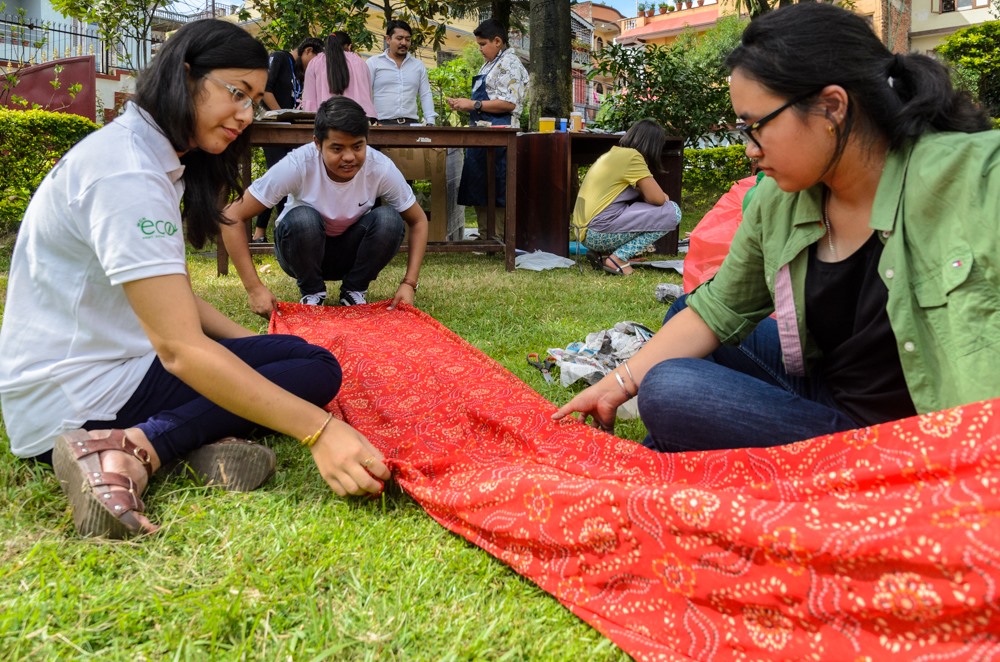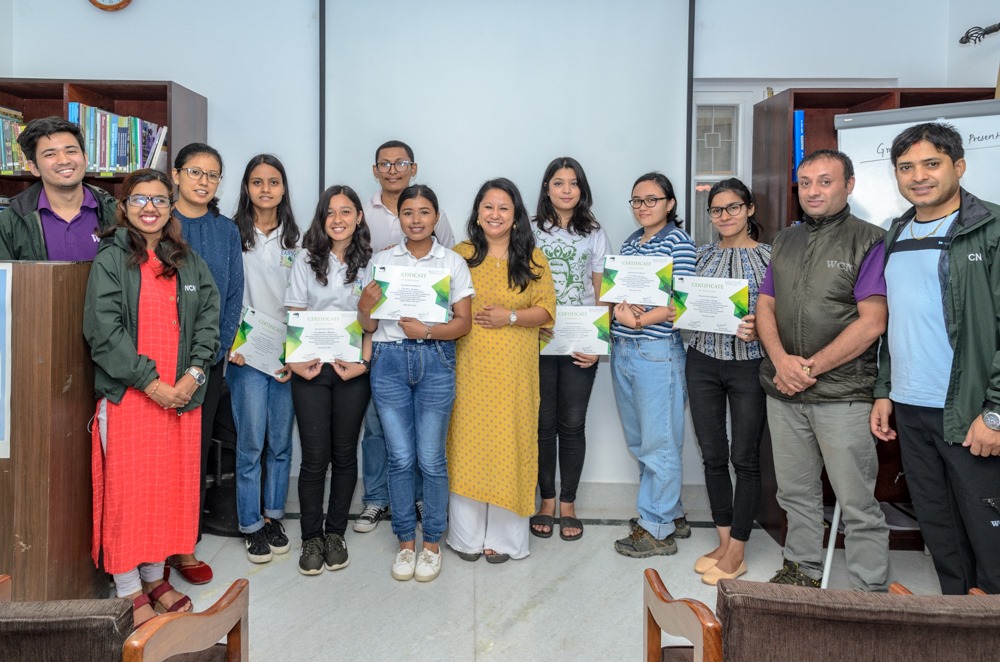

January 05, 2020 By Chetna Gurung
I signed up for the Volunteer Recruitment Program of Nepal Prakriti Pathshala in June 2017 and joined as a School facilitator and the last two years, have been wonderful learning curve for me.
Through WCN's Environmental Education programs we are trained to provide students, teachers, parents and volunteers- who run the activities, with opportunities to connect with nature. In this day and age when rapid and unorganized urbanization is taking place, we are quickly losing our touch with nature. The younger generations living in condensed cities like Kathmandu have very limited access to nature. Thus through the implementation of Eco-Smart School Program, many students have discovered the joy of working and enjoying nature.
Over the last two years I have spent many days teaching students from different schools, about various ways of leading environmentally friendly lives. What I realized is that although children know about the many components of nature they aren’t familiar with learning in nature. We rarely use nature as a classroom. Through Eco-Smart School Program, we as facilitators were able to help them gain practical knowledge about various things like vegetable gardening and compost making, which are not taught within the 4 walls of the classroom. It's one thing to talk 3R (Reduce,Reuse, Recycle) but something else to actually practice it. We did this through activities by making bookmarks, photo frames out of newspapers and used plastic materials. These hands-on activities have definitely made an impact to the students as some of them have started to put such activities into practice in their homes as well.
The behavioral changes is one of the positive outcomes observed in students. From eating healthy vegetables to bunking the use of non-biodegradable products, students also have been sharing and carrying out all the learnings in their daily life. Along with it, our group activities have built team spirits by working on activities like 3D models, sowing seeds and weeding.
I have definitely seen progress in student’s behaviors and actions because they share things they have done at home, which they learned through NPP classes. Most of their stories are them reusing old containers or doing rooftop/bottle gardening. I feel a sense of accomplishment when I hear such stories because it proves that our outdoor/interactive teaching methods have a positive influence.Not only the schools, but this program has also proved to be fruitful for the volunteers who work as eco facilitators. Through this program, many volunteers have fallen in love with the outdoor teaching method and also have found the joy in working with children in an unrestrained environment. Most of the eco teachers agree that they have formed a healthy yet respectful relationship with the students by teaching them in the open environment. ‘Learning while doing’ approach has helped them to teach their students in an effective way.
 |  |
My fellow volunteer colleague, Shiraja Pandey, who has been involved in this program from June 2018 says, "Through Eco-Smart School Program, I felt that while teaching the students I’ve also learnt a lot from them. My schooling years were all inside classrooms and now when I teach them new things in an interactive way, I feel satisfied because this method of teaching has helped me to see changes in the students. I’ve also felt progress within myself as well. Since I’ve started to work as an Eco facilitator, my communication skills have improved vastly."
For Monika Dhakal, who has been involved more than one year, the experience is similar. She says," I've never worked with children and this was also my first time as a volunteer. The journey till now has taught me many things and the most beneficial thing for me was learning to work in a team. Learning together with children from various age groups, I felt that I've advocated a lot of eco-friendly activities that should be learnt from a young age. Along with children, I also met friends from different fields who I can work together and share ideas. Additionally, I've been confident of my delivery skills and also learnt to make quick decisions."
All said and done, I believe young individuals should not wait for opportunities to fall on their laps. One should go out and find opportunities where you can learn and contribute to the local conservation scene. There are many organizations like WCN where young graduates like me can sign up and gain experience before we embark on our professional careers. This can build foundation for our work as environmentalists because every one's effort counts in our pursuit of securing healthy environment for all.
Chetna is a graduate in Environmental Science from Nami College. She has worked with WCN/NPP projects since 2017. Chetna is also a Wedu Rising Star fellow. She can be reached at chetnag97@gmail.com
House No. 135, Nayabasti Marg, Baluwatar, Kathmandu-4
Tel: +977 1 437 5460, +977 1 437 5267
Email: mail@wcn.org.np
© Wildlife Conservation Nepal . Developed by Eleven Pixels.